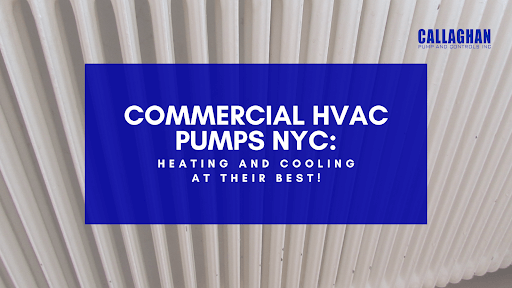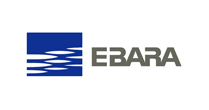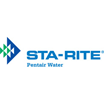
February 23rd, 2024
When looking for HVAC pumps to heat or cool your commercial space, you need to understand what makes them different from regular pumps. Over the past few years, pump technologies have changed dramatically with the introduction of new code compliance and environmental concerns.
Also, ensure you can protect HVAC pumps during a natural disaster. Read on to discover the differences between regular pumps and commercial HVAC pumps.
Compared to regular pumps, HVAC (Heating, Ventilation, and Air Conditioning) pumps serve different purposes. They are specialized for the specific needs of heating, ventilation, and air conditioning systems in buildings.
Centrifugal pumps are common in commercial HVAC pumps. This is mainly because of their design simplicity, high efficiency, smooth flow rate, low operating costs, and ease of operation and maintenance.
Positive displacement pumps are only best for chemical dosing in cooling water systems. Below is a brief comparison between regular and HVAC pumps:
HVAC systems use various pumps to circulate water, transfer heat, and maintain the desired temperature. The selection of the right pump type depends on the specific requirements of the HVAC system, including flow rate, pressure, fluid type, and system design.
So, it’s essential to consider factors such as energy efficiency, reliability, and maintenance requirements. Many factors go into determining which type of HVAC pump would be best for an application.
The most common type of pump used in the HVAC industry is a single-stage (one impeller). This type of pump either has a single inlet or a double inlet (double suction). Double suction pumps are ideal for high-volume applications.
Other options include close-coupled and end-suction pumps. The closed-coupled type has the impeller mounted on a horizontal motor supported by the motor foot mountings. A solid concrete pad should be there for mounting. Keep in mind that the motor and pump should not be misaligned. The following are some common types of HVAC pumps:
End-suction pumps are general-purpose centrifugal pumps that come with heavy wall castings. These pumps are suitable for many commercial, industrial, and municipal needs. They are easy-to-maintain, reliable, long-lasting pumps. Major applications include condenser, chilled, and hot water systems in HVAC.
Vertical inline pumps feature a space-saving design. These back pull-out HVAC pumps allow versatile applications in a wide range of industries. They are available in different size configurations to meet the dimensional requirements of commercial applications.
Horizontal split-case is a single-stage, general-purpose pump designed for continuous service handling of hot and cold water. The horizontal pump design requires more space than its vertical counterpart. However, it is best for high-volume applications and offers a long-life solution.
Regenerative turbine HVAC pumps offer a unique design engineered for high-pressure, low-flow applications. They can be installed horizontally, vertically, or at an angle. These pumps often feature self-adjusting mechanical seals and have a standard mounting flange.
Whether you are planning to replace an existing HVAC system for your business or purchase one for the first time, there are several important considerations you need to make when looking for heating and cooling solutions for your commercial space. A heating and cooling professional can evaluate your building to help determine the ideal option.
Do you need help with your HVAC pump needs? Let’s connect!
john@callaghanpump.com,
eileen@callaghanpump.com,
dan@callaghanpump.com,
sales@callaghanpump.com,
service@callaghanpump.com












